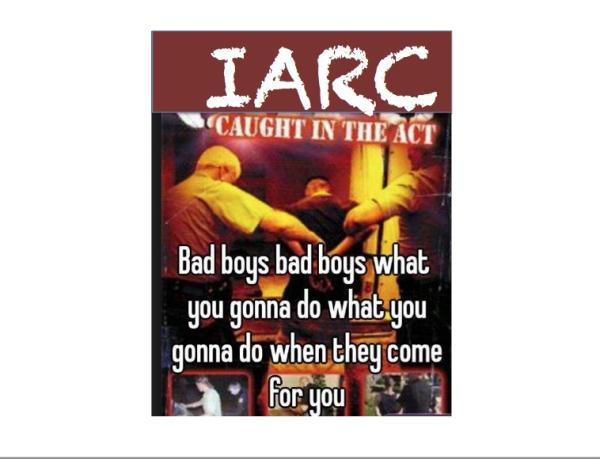
"Honesty is such a lonely word.
Everyone is so untrue.
Honesty is hardly ever heard.
And mostly what I need from you."
Billy Joel, 1979
If Billy Joel's smash hit from 1979 was playing on Pandora at the 2015 meeting of the International Agency for Research on Cancer (IARC), it fell upon deaf ears. Although the stated purpose of the meeting was to determine the carcinogenic status of glyphosate (the active ingredient in the weed killer Roundup), the agency may have selectively excluded exculpatory data, according to a new investigative report by Reuters.
This is hardly the first time that the ethics of IARC, which is under the auspices of the World Health Organization, have been questioned. Among the most scathing commentaries is Hank Campbell's 2015 takedown of the agency for claiming that sausage was as carcinogenic as cigarettes.
"Since only one out of almost 1,000 compounds they have ever looked has been deemed not carcinogenic (Group 4), it is given that if someone on a UN committee decides to look at your chemical, your company is going to be the subject of an environmental fundraising campaign or at least a rant by The Food Babe."
Hank Campbell, "Meat, Coffee - Why Only Activists Pay Attention To IARC Claims"
But this time it's worse. There is a world of difference between stupidity and blatant dishonesty. Glyphosate is the current poster child for chemical scares. Although the main knock on the chemical is that it supposedly causes cancer, it has been blamed for a host of other maladies, including (ridiculously) autism. (See: "MIT Researcher: Glyphosate Will Cause Half Of All Children To Be Autistic By 2025. Yeah, Sure."
The Reuters investigation focuses upon sworn testimony by Aaron Blair, an epidemiologist for the National Cancer Institute, who was also the chairperson of the IARC panel that convened in France to determine how to categorize the weed killer—though it was deemed safe by all regulatory bodies activists insisted it was harmful. At the meeting, Blair claims he found himself in a very strange position. Although he was the Chair, he was not permitted to consider his own work, which firmly established that there was no connection between glyphosate and cancer. Why? Because according to the agency's rules, only published work can be considered. This was ostensibly to prevent safety established by industry GLP (Good Laboratory Practice - the highest quality) studies that were used by bodies like EPA but never published in journals.
This is where things get strange, especially because it may be that Blair's holdup of his own publication was intentional.
The holdup of the publication recently became a key issue in a California lawsuit against Monsanto, which claims that the company failed to adequately warn the public about the risk of Roundup. In its defense, the company questioned Blair about why his work, which showed no connection whatsoever between glyphosate and any cancer, was not made public. His answers were not all that convincing. Blair claimed that the paper was simply too big: "We decided to remove it because … you couldn't put it all in one paper.”
IARC considers itself the most important hazard-finding group in the world. California considers it so authoritative that an IARC hazard classification merits automatic inclusion on their Prop 65 warning label list. And led to environmental lawyers lining up to sue.
And the Chair left out a study that would have kept the product from its classification because they didn't have enough paper?
Up next: Why the delay in publication, and what's the difference?



